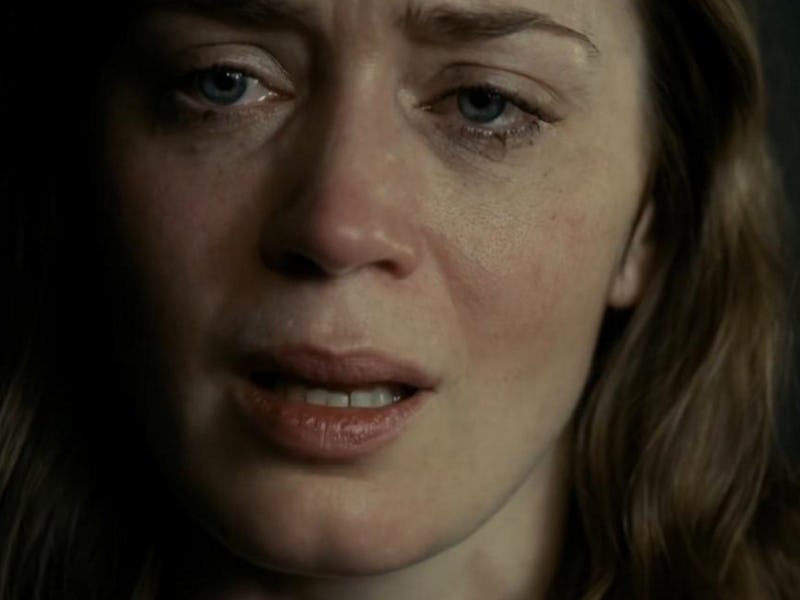The Science of Blackouts In 'The Girl on the Train'
The main character of the film attempts to solve a mystery by recreating memories she doesn't have.

Rachel Watson (played by Emily Blunt) is the unreliable protagonist of The Girl on The Train, an alcoholic prone to blackouts who attempts to solve a mystery after a local woman goes missing the same night (you guessed it) she gets wasted and blackout drunk.
Are blackouts a realistic plot device for a mystery based on unearthing nonexistent memories? If that person is very, very drunk, then yes. Experts believe there are two types of blackouts. One is referred to as en bloc, which is the complete inability to remember anything in a time period — and fragmentary, when the memory loss is incomplete. Cognitive impairment happens before physical impairment when someone is drinking, so that’s why a person can seem fully functional but actually be blackout drunk. Importantly, blackouts aren’t considered to be a loss of consciousness; rather, it’s a process where alcohol disrupts the brain’s ability to form memories.
In 2011, University of Washington researchers found that alcohol weakens the nerve cells that act as key receptors in the brain. This inhibits the ability of neurons to make strong connections in the hippocampus, which are responsible for learning and creating autobiographical memories. That’s why the memories you make in the moment while blackout drunk — short-term ones — are the ones that disappear into the memory ether.
Researchers agree that a person is more likely to experience “memory impairment” the more alcohol they consume. But just drinking more alcohol than everyone else around you doesn’t forecast a blackout; gender, environment, physiological, and psychological factors all play a part. The probability of a blackout is also affected by hereditary factors because certain genes are associated with alcoholism, which means certain people are more likely to drink to the point of a blackout — and beyond. A 2004 Australian study found that there is an estimated 53 percent heritability rate of lifetime blackouts.
Blackouts become a compounded issue when the issue of criminal defense is involved, like that of Girl on the Train. Most forensic researchers think that alcoholic blackouts shouldn’t serve as a pass for defendants. In Dutch courts, for example, citizens are expected to understand the consequence of excessive alcohol use; a defendant who claims they were blacked-out during the crime is nevertheless held responsible for their behavior. But there have been exceptions — for instance, the Canadian court case R v. Daviault, in which the Supreme Court acquitted the defendant because he said he had no memory of his crime due to intoxication.
Regardless of the courts’ interpretation, the science is clear: Blacked-out witnesses have no memory of the crime. When researchers have prompted people to recreate their blackout memories, these reconstructed memories unanimously turned out false.
It’s not that Rachel can’t remember what happened to her; it’s that she doesn’t have those memories at all.